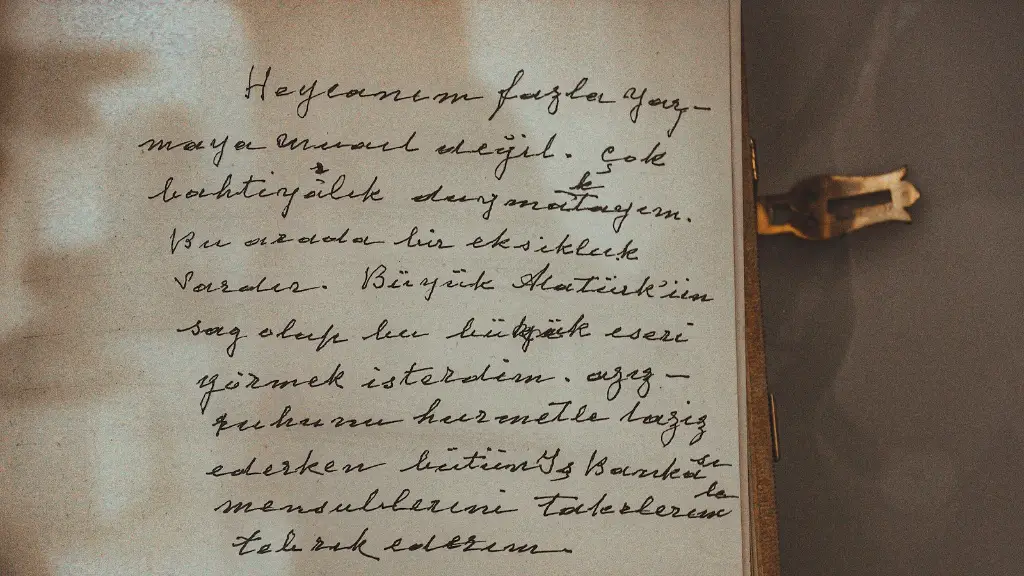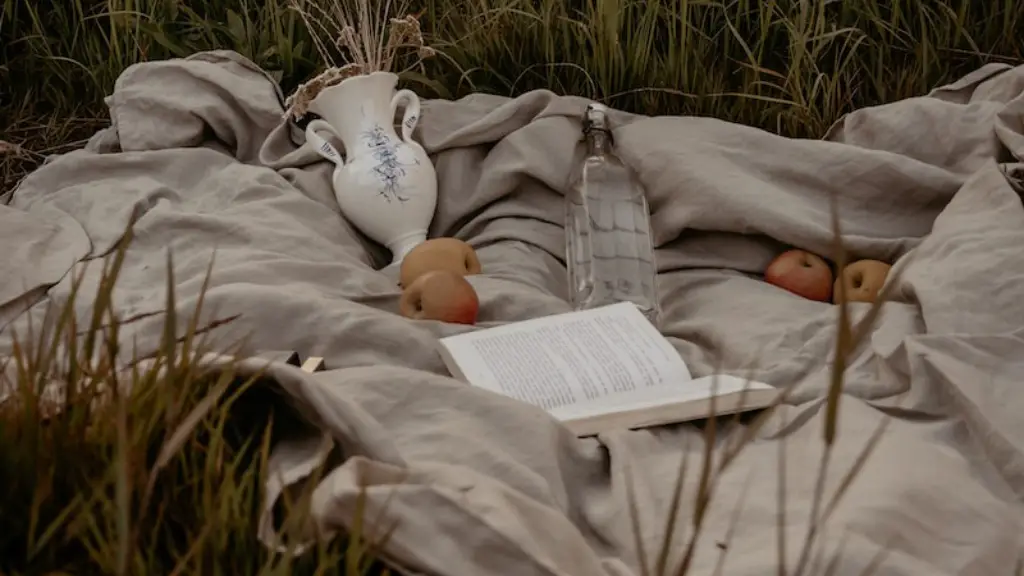The notorious Irish poet and playwright Oscar Wilde has been the subject of much debate for years. The issue of whether or not he was a ‘bad guy’ has been discussed since his early career, and emotions often run high on either side. In this article, we will look at the facts, and explore popular opinion to determine if Oscar Wilde was a bad guy.
A key point to consider is Wilde’s views on human sexuality. He argued passionately for a widening of social norms around sexuality, believed that every member of a society should be free to express their desires and urges, and openly denounced ‘Victorian morality’. While these values and beliefs are widely accepted today, in Wilde’s day they were seen as scandalous and even heretical.
Yet Oscar Wilde did not just practise ‘free love’ and challenge norms on a personal level, but publicly too. His books feature same-sex relationships, and he wrote plays with transgressive, anti-establishment themes. As a result, much of the mainstream press vilified him, and he was even charged with ‘gross indecency’ and went to prison. This certainly indicates that he was seen as ‘bad’ at the time.
On the other hand, many people argue that Wilde was simply ahead of his time, and that he should not be judged by the values and morality of his day. After all, his provocative writing has gone down in history as some of the greatest works of literature, and his calls for equality, freedom and social justice have inspired generations of people.
Ultimately, “Was Oscar Wilde a bad guy?” is a difficult question to answer. Admirers may see him as a misunderstood genius, while detractors may focus on his conflicts with the law. One thing is for sure: Wilde left a lasting mark on our culture and society.
Oscar Wilde’s Personal Life
Oscar Wilde was born in Dublin, Ireland in 1854, and he had an affluent upbringing – his father was a successful surgeon, and his mother was a poet. He often travelled to London as a young man, and this was where his career as a writer and thinker truly began. In 1884, he married a wealthy Englishwoman and soon after, he had a son and a daughter.
Wilde was known to enjoy the good life, and was often seen dining in the finest establishments, wearing expensive clothes and driving a luxurious carriage. Some have argued that his early fame, wealth and social standing made him very self-assured and arrogant – traits that did not endear him to the public.
Wilde was a polymath, and throughout his life he was passionate about science, philosophy, theatre and writing. His friends, family and colleagues praised his warm and generous nature, as well as his sharp wit and intelligence. However, others have argued that Wilde over-indulged in his own lifestyle and opinions, and that this could be seen as a form of hubris.
In 1895, Wilde began an affair with a man named Lord Alfred Douglas, and the subsequent scandal forced Wilde out of public life. He was eventually convicted of ‘gross indecency’ and sentenced to two years in prison. After his release, Wilde moved to France, and spent his remaining years in poverty and obscurity.
Oscar Wilde as A Social Critic
Wilde was an outspoken and passionate critic of the society he lived in. He held staunch beliefs regarding social justice, equality, and personal freedom. His works often directly address issues such as prejudice and censorship.
Wilde is best known for advocating for an expansion of social norms around sex and sexuality. He was a believer in free love and fought against laws which criminalised homosexual acts. He also argued for greater acceptance of people from different backgrounds and dissenting opinions.
More broadly, Wilde advocated for a shift away from Victorian morality and toward a more inclusive, compassionate, and egalitarian society. Although this was seen as outrageous and scandalous in his time, much of what Wilde believed is now accepted as commonplace in the West.
Wilde was a passionate and fearless critic of the establishment, and was willing to stand up for the rights of the marginalised and oppressed. He even put his own freedom and fortune at risk on multiple occasions, in order to speak out against injustice and prejudice.
Oscar Wilde’s Legacy
To this day, Wilde’s legacy continues to inspire and challenge us. His works are taught all over the world, his views are cited in debates about modern morality, and his ideas about freedom and equality have been vindicated by the rapid changes we have seen in society during the last fifty years.
Without doubt, Oscar Wilde was a unique and enigmatic character. His courage, wit and thoughtfulness both helped to enrich the arts and culture of his time, and still offers a valuable point of reference today.
Whether or not Oscar Wilde was a bad guy is up for debate. While we may not agree with all of his actions, we can still appreciate him for his convictions, and for his willingness to take a stand for what he believed in.
Impact of Oscar Wilde’s Writing
Oscar Wilde wrote prolifically during his lifetime, producing plays, poems, essays and more. His works have become some of the most famous and beloved pieces of English literature, and are taught and studied all over the world.
Wilde’s writing was often daring, controversial and humorous at the same time. He employed irony, satire and dark humour in order to critique the society of his time. His plays, stories and poems often focused on truth, justice and beauty, as well as the human cost of living in a repressive and conservative society.
His works have influenced generations of writers and thinkers, and his uncompromising exploration and celebration of human relations and desires have earned him a place in history. Although Wilde had many critics, his writing has stood the test of time, and continues to captivate and inspire readers to this day.
Oscar Wilde’s Place in Modern Culture
Oscar Wilde is still revered in today’s society. His works, views and personality are celebrated in movies, television shows, books and music. He is also one of the most iconic figures of the Victorian era.
Wilde has inspired and moved many people, as well as providing points of reference for debates about morality, justice, beauty and more. In an age of constant change, Wilde’s words remain relevant and his story continues to resonate with people all over the world.
He is a source of fascination for the public, and his life and works continue to provoke debate and discussion. His name is synonymous with wit, intelligence and courage, and he remains an important figure in the history of social reform.
Oscar Wilde’s Relevance to Today’s Society
Oscar Wilde’s story has a great relevance to today’s society. His challenge to social accepted values and beliefs can be seen as an example of standing up for one’s convictions, no matter the cost.
Wilde’s calls for compassion, freedom and equality still resonate in today’s society, and his works continue to explore issues of gender, sexuality and social acceptance. His influence can be seen in movements such as the #MeToo and Black Lives Matter, as well as in debates about human rights.
Oscar Wilde was undoubtedly a complex and controversial figure. While some may consider him a ‘bad guy’, many can look past his controversial views and focus on his legacy as an advocate for change, and a voice for the marginalised.





